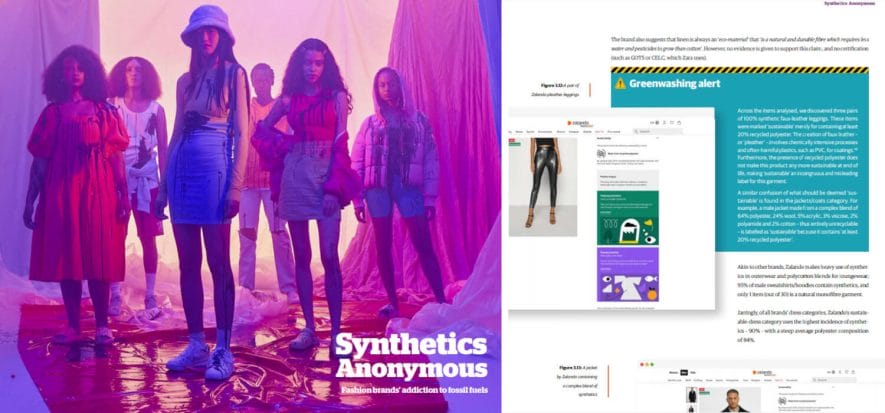The war on plastic has brought some results, such as the ban on single-use plastic imposed by the EU. But there is a segment within which the debate on synthetic materials is yet to catch on: the fashion system. That’s why Syntethics Anonymous, report by Changing Markets Foundation, has begun posing the question of plastic in the fashion segment. Because luxury brands of all categories love to brag about the results they supposedly achieve with regards to environmental sustainability. But they are all “unclear”, (or in some cases focused on greenwashing), when it comes to synthetic materials. The topic, we know, is tied to alternative materials to leather. And, in fact, Forbes had to state that the majority of bio-based materials are, as proven by FILK’s study, less green and more plastic.
Plastic in fashion
Syntethics Anonymous checks the activities and communications of about 50 big brands, from top-end ones (Louis Vuitton and Gucci) to mass-market (H&M and Zara), as well as e-commerce platform (Zalando and Asos). The results and clarity levels of the brands’ sustainability objectives are vague. The one thing we do know is that there is a massive use of plastic: an analysis on the e-commerce channels of 12 European brands, for example, showed that in the Spring-Summer collection currently being distributed, about 2/3 of products contain synthetic materials. That’s why, insists Forbes, plastic in the fashion segment is a topic that deserves more attention. “As previously calculated by the same foundation in a prior study – reads the report -, the production of synthetic fibers accounts for 1.35% of the global consumption of hydrocarbons. Polyester, nylon, acrylic and PVC in 2030 will be worth 73% of the textile production”.
Alternatives to leather
Alternatives to leather are part of the problem. “the FILK Freiburg Institute has analysed the chemical compositions of vegan leather alternatives like Desserto, Piñatex and Appleskin. Alarmingly – continues Forbes -, the findings reveal that a number of these materials, commonly lauded as sustainable, also contain polyurethane (PU), PVC, or polyamide microfibers”. Moreover, “The Circular Laboratory identified that plant-based leathers like Desserto have only a minimal proportion of natural materials in their composition”: the rest of it is made with synthetics like PU. This is an issue to the unclarity that surrounds these materials’ compositions, as they make false “claims regarding their biodegradable properties – closes Forbes -. “Conversation about sustainable material alternatives requires more nuance to prohibit the spread of fake news”.
Read also:











